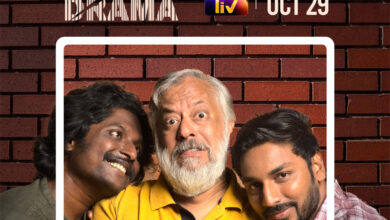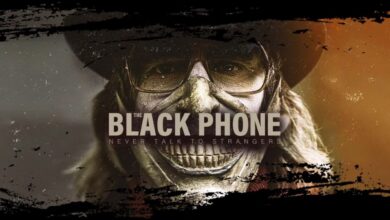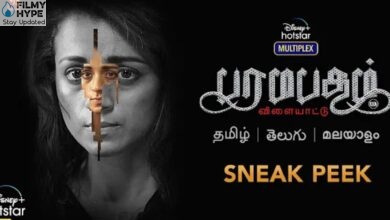Orion and the Dark Review: Magical Film That Will Enter Your Heart And Will Make You Think About The Night
Cast: Jacob Tremblay, Paul Walter Hauser, Angela Bassett, Ike Barinholtz, Natasia Demetriou, Golda Rosheuvel, Nat Faxon, Aparna Nancherla, Carla Gugino, Matt Dellapina, Jack Fisher, Werner Herzog, Colin Hanks
Director: Sean Charmatz
Streaming Platform: Netflix
Filmyhype.com Ratings: 4/5 (four stars)
Who has never been afraid of the dark? Certainly not Orion, the young protagonist of the new DreamWorks Animation film distributed by Netflix entitled Orion and the Dark, directed by newcomer Sean Charmatz. This shy and awkward child, in fact, wastes no time and immediately makes us share in all the fears that grip him, practically making it impossible for him to lead a normal existence. The film is therefore an hour-and-a-half journey into his interiority, into his mind, and this should not be surprising considering the film’s exceptional screenwriter: Oscar winner Charlie Kaufman. The author of Being John Malkovich and Eternal Sunshine of the Spotless Mind adapts Emma Yarlett ‘s illustrated book of the same name, bringing to it all his own peculiarities and thematic interests. After directing I’m Thinking of Ending It Here in 2020, Charlie Kaufman is once again in the court of Netflix, but this time only as a screenwriter, adapting a children’s book that was turned into a feature film for DreamWorks Animation.
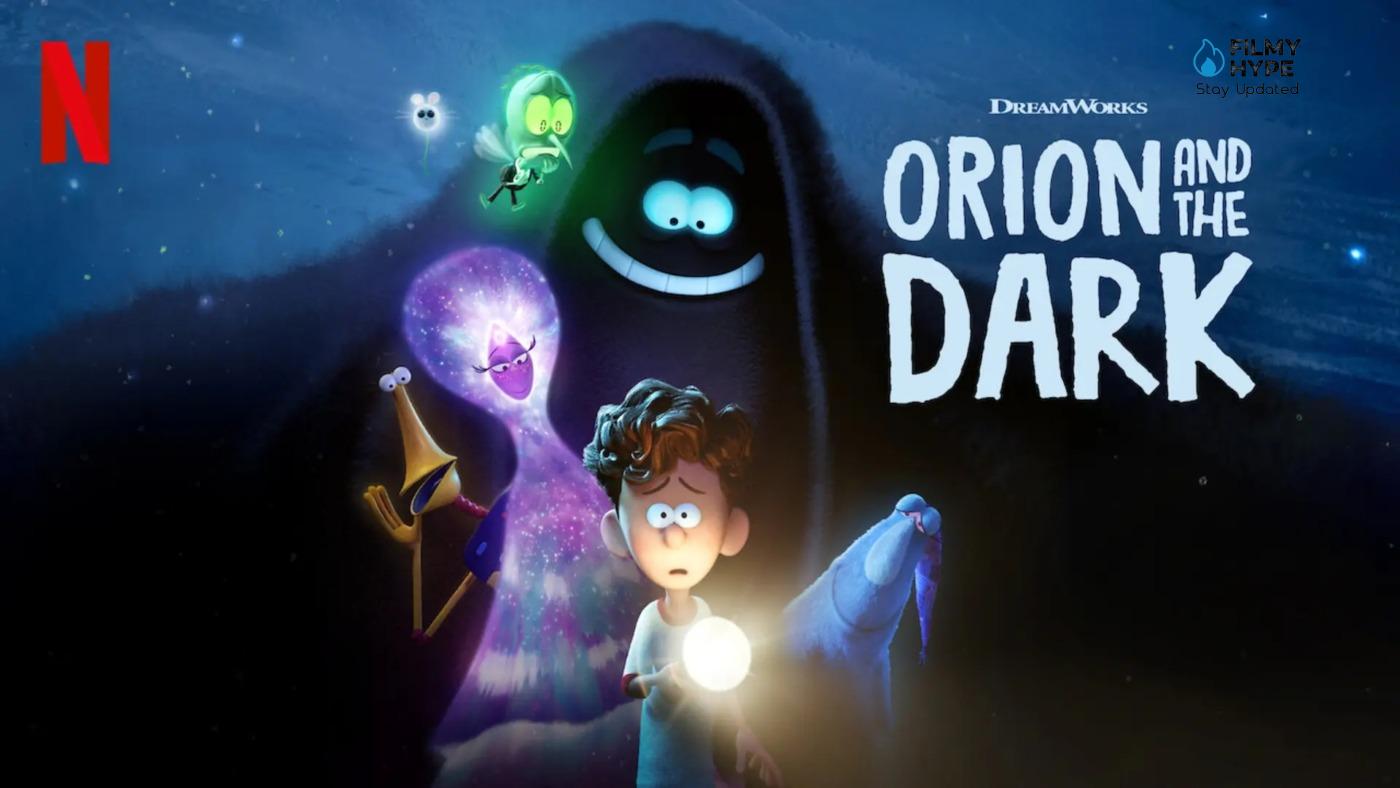
A feature film which, unusually for the studio founded by Jeffrey Katzenberg, Steven Spielberg, and David Geffen, is not released in theaters but directly in streaming (a fate previously experienced only by the film that concluded the Arcadia serial franchise, created by Guillermo del Toro), yet another ingredient of the almost ten-year synergy between one of the giants of American animation and the undisputed giant of domestic audiovisual consumption. It is this film that we talk about in our review of Orion and the Dark. We decided to start by talking about the potential of the film based on the illustrated book of the same name by Emma Yarlett because the story it tells cannot be framed in just one genre or the usual two levels of reading. We are faced with a liquid text, which changes before our eyes, deconstructing itself and then recomposing itself and taking on a new form each time until an ending capable of returning to the imaginative nucleus from which everything originated, as the best stories claim. In this case, it even goes back to the name of its protagonist (the one in the film), Orion, like the constellation and the starry sky.
Orion and the Dark Review: The Story Plot
Orion (originally voiced by Jacob Tremblay) is a child who lives his days overcoming a considerable number of fears, ranging from the most understandable ones such as talking to the girl he likes, answering the teacher’s questions, or being mistreated by the school bully. school to other decidedly more curious ones, such as flushing the toilet, cutting one’s hair, taking the bus, and so on. In short, he is the classic child who needs to find the courage to throw himself into situations, except that these are practically all situations. Orion is probably Kaufman in elementary school and perhaps that is precisely why the writer decided to tell his story. Things don’t improve for the young man when the sun goes down, on the contrary: if the day is scary, the night is three times as scary, to the point that his constant shouts annoy those who work at night.
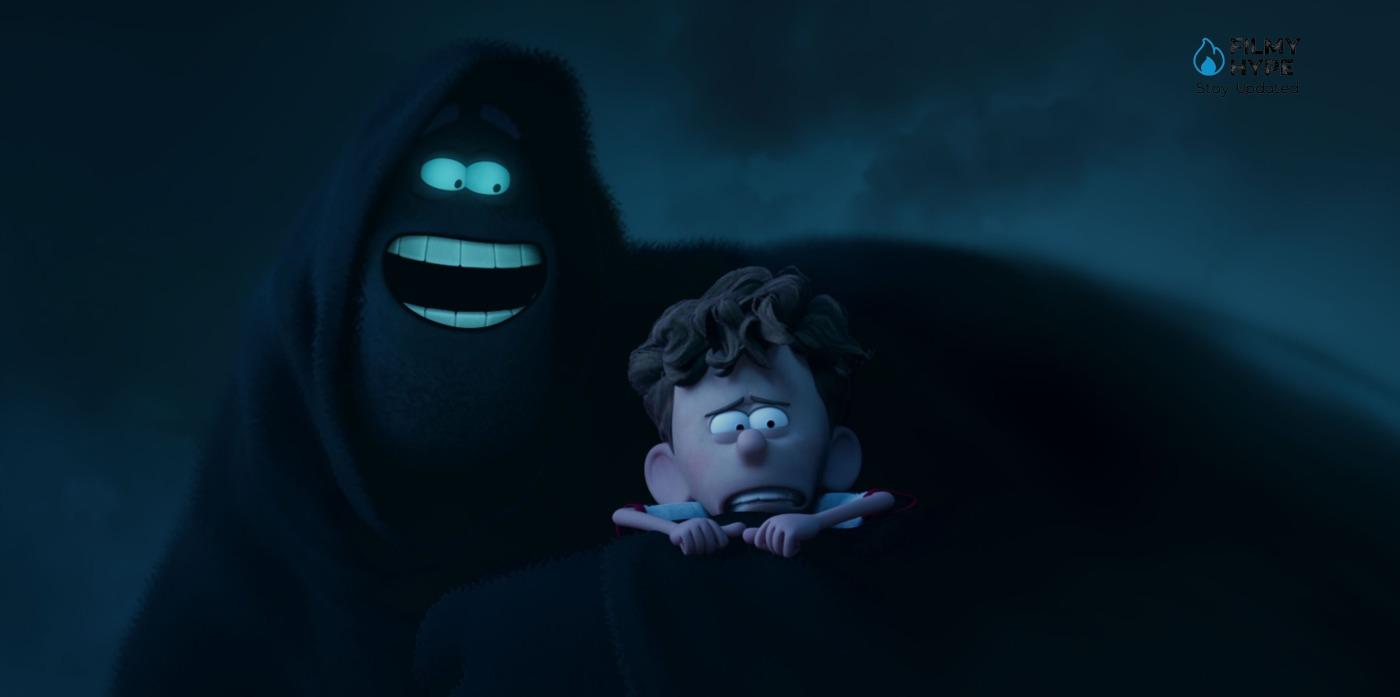
Like Buio (Paul Walter Hauser), but also her companions Quiet (Aparna Nancherla), Insomnia (Nat Faxon), Sleep (Natasia Demetriou), Mysterious Noises (Golda Rosheuvel), and Sweet Dreams (Angela Bassett). Such a nuisance that Buio himself decides to remedy, appearing before Orion to propose to leave with him for an overnight journey to discover all the beauties that hide behind the light of the Sun. A great story, right? Grown-up Orion (Colin Hanks) also thinks so and is telling it like this para to his daughter Hypatia (Mia Akemi Brown) – another name that has something to say, who is also petrified by fear of the dark and therefore unable to sleep. Together, the two will build a story in which they will be able to dig into the depths of their fears, finding something in common with the object of the phobia and also with their relationship, to finally be able to fly hand in hand towards the future.
Orion and the Dark Review and Analysis
Orion and the Dark is a neurotic film in the most Kaufmanian (and therefore good) way of the term. An anarchic film, to take on its definitive form needs to take the liberties of being able to explore its characters, opening parentheses, getting lost in narrative ellipses, retracing its steps, deceiving the logic of chronological constructions, going under the rhythm and then change gear suddenly. In this sense, it finds its main ally in the language of animation. The work of Charmatz and the entire technical sector is therefore grandiose, building a universe with the need to practically always remain with a nocturnal scenography, never being banal, repetitive, or flat, but, on the contrary, exploiting this duty to create something suggestive, colorful, lively and unpredictable.
Unpredictable is the key word, because, returning to writing, what begins as the most classic of semi-autobiographical coming of age on two easily separable levels (inner dialogue and action in reality) then takes on the features of a generational story, in which a father and daughter build a journey to take together out of a need for mutual discovery starting from a common point which in this case is the fear of the dark. At this point, an exploration begins on what darkness means for them, that is, emptiness, the unknown, silence, the desert, loneliness, and the inability to control the future. To make a long story short: the risk of having to just throw themselves in – as mentioned at the beginning of the article – accepting that fear will always be part of their life. Here the “maxima theme” is inserted, the one from which all the others start and the one to which all the others return, that is, the importance of stories, which is the driving force behind the entire career of Charlie Kaufman, an author who has practically written and shot films just to reiterate this concept.
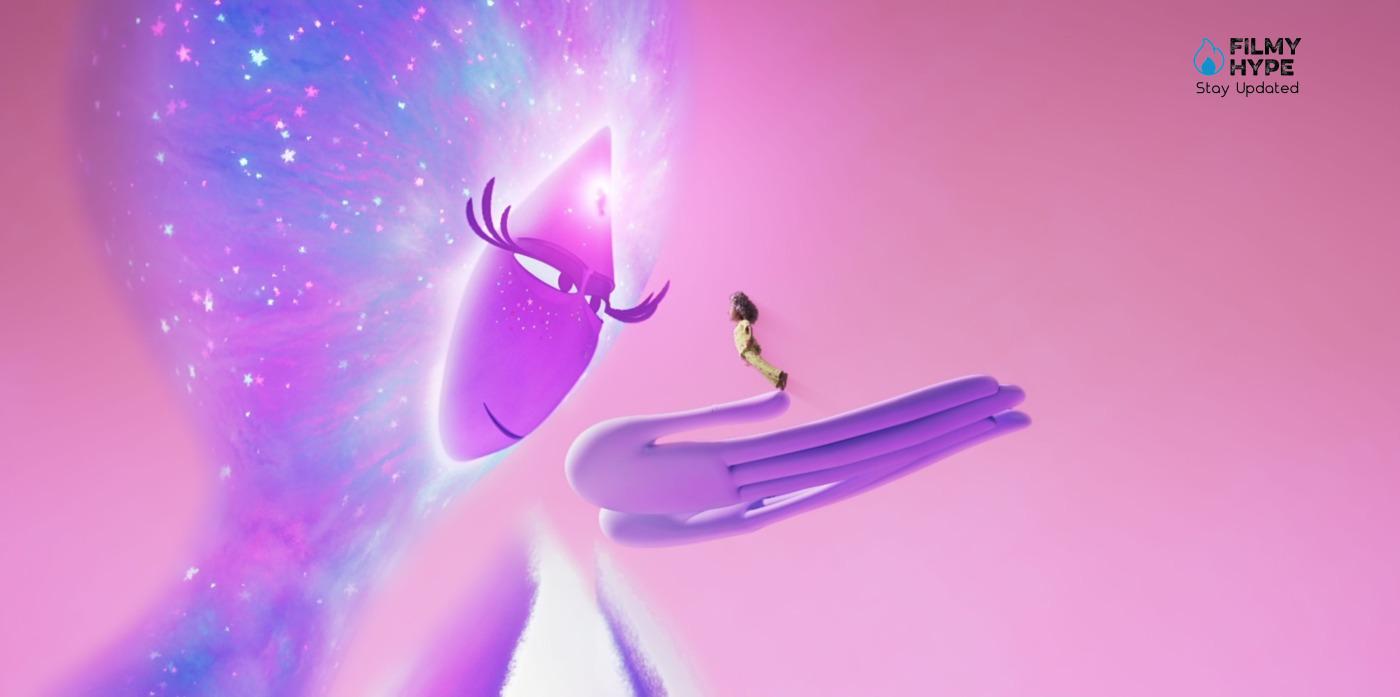
Stories are born in the darkness just as stars are born (this is why Orion and this is why Hypatia, who intervenes halfway through the second act to guide the baby father to metaphorically take his place in the sky), lights from a dark matter, from which emancipate, but without which they would never have been able to ignite. They have the power to link different generations, thoughts, and worlds, thanks to their ability to change shapes and colors, bending through languages, but without losing anything of their universal caliber. This is the lesson to the viewer of Orion and the Dark – a film that can be suitable for children as well as adults – and perhaps this is the first time that Kaufman has managed to achieve such a goal. Among a thousand returns, an unreleased one.
For the first time since the days of Bee Movie, which translated many of comedian Jerry Seinfeld’s obsessions into animated form, it is the writing that stands out most in a DreamWorks film, a production context in which it is usually the aesthetic apparatus, combined with voice casting, to be the master. Net of the literary source, it is a film by Charlie Kaufman, an exercise in augmented reality and cheerful surrealism that manages to move his typical journeys between levels of reading and treatises on anxiety to the child level (the contrast is notable, for those who have seen both films, with his previous foray into animation with Anomalisa ). And just like in Bee Movie, the animation is a little less convincing, spectacular when you ascend to other levels of reality, and rather flat in the real world. Perhaps a precise aesthetic choice, but one that highlights a certain step back after the recent leaps in quality in the DreamWorks catalog that hinted at a regular evolution and a return to that ambition that in the early years had made the studio a solid rival of Disney.
The fact that the title has been relegated to Netflix only increases this impression, despite the smoothness of an adventure that manages to convey its screenwriter’s messages in a simple but not banal way. There is an immense prejudice regarding the dark: it is scary. There’s no point in denying it. Although we can define ourselves as “night owls”, that is, people who manage to stay awake until late at night or be more concentrated at the end of the day, what we cannot see in the dark always tends to scare us. From sudden noises that make us imagine the worst possible scenarios to the negative thoughts that torment us just before sleeping, from sleep that doesn’t seem to come despite our tiredness to the fear that who knows who or what might be hiding under our bed so that we won’t even slip one arm outside the mattress. The night with its darkness, silence, and impossibility of control brings with it a negative and frightening vision of the world. But what if we just changed our perspective? If only we could understand that darkness a little more and see its colors.
Here this “hated” dark moment that marks the end of a day would be transformed into pure magic. And what gives us this new point of view on darkness is precisely this new Netflix cartoon which, with a simple and beautifully told story, manages to make the soul of anyone vibrate, children but above all adults, and does so with great effectiveness and refinement. Furthermore, Orion and the Dark gives the public a set of splendid imaginary characters that will struggle to get out of their head after seeing the film: from “sweet dreams” to “insomnia”, up to “calm”, “inexplicable noises” and then again “sleep”, all essential elements for the night to function properly. So, why is Orion and the Dark so special? Because it is an enchanting, emotional film and above all capable of opening our eyes to how much darkness is necessary to be able to appreciate the value of light itself, it is a magical film that will enter your heart and will make you think about the night, about insomnia, to darkness and bad dreams in a completely different way.
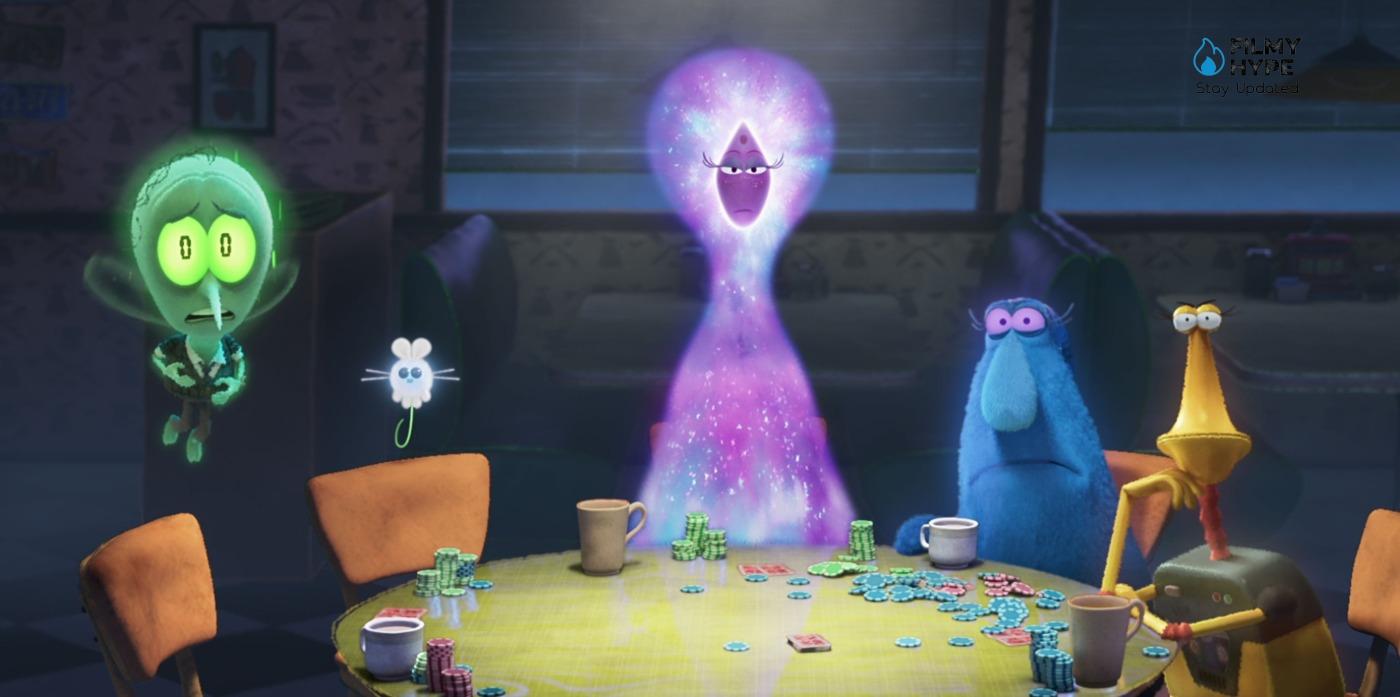
This journey imagined by Yarlett for Orion and the Dark sounds a bit like a bedtime story, one of those that aim to make what terrifies us less scary by learning to know it. Kaufman must have thought so too, they chose to enrich the story by constructing it as if it were a story told to help those who don’t want to know about relating to the darkness (and everything that darkness represents). So, if during the viewing you notice inconsistencies, forcings, or sudden evolutions between the characters in the face of invalid motivations, there is no need to worry: Kaufman is quick to reveal that these are desired and necessary elements to reproduce that sense of an improvised and non-improvised story. thoughtful that is recited on these occasions.
The important thing is that the message and its associated values are transmitted, with a tone and form appropriate to the age of the child listening to the story. But telling all this for the screenwriter who has built his entire career on the journey into the human mind means proposing a continuous alternation between imagination and reality through anything but predictable joints, to the point of making important leaps in time to make this bedtime story a generational issue. Fears are never completely defeated and are often passed down from generation to generation. Aware of this, Kaufman also seems to be interested in the way in which these stories evolve, adapting to the sensitivity and knowledge of those who listen to them.
The important thing is that the message and its associated values are transmitted, with a tone and form appropriate to the age of the child listening to the story. But telling all this for the screenwriter who has built his entire career on the journey into the human mind means proposing a continuous alternation between imagination and reality through anything but predictable joints, to the point of making important leaps in time to make this bedtime story a generational issue. Fears are never completely defeated and are often passed down from generation to generation. Aware of this, Kaufman also seems to be interested in the way in which these stories evolve, adapting to the sensitivity and knowledge of those who listen to them.
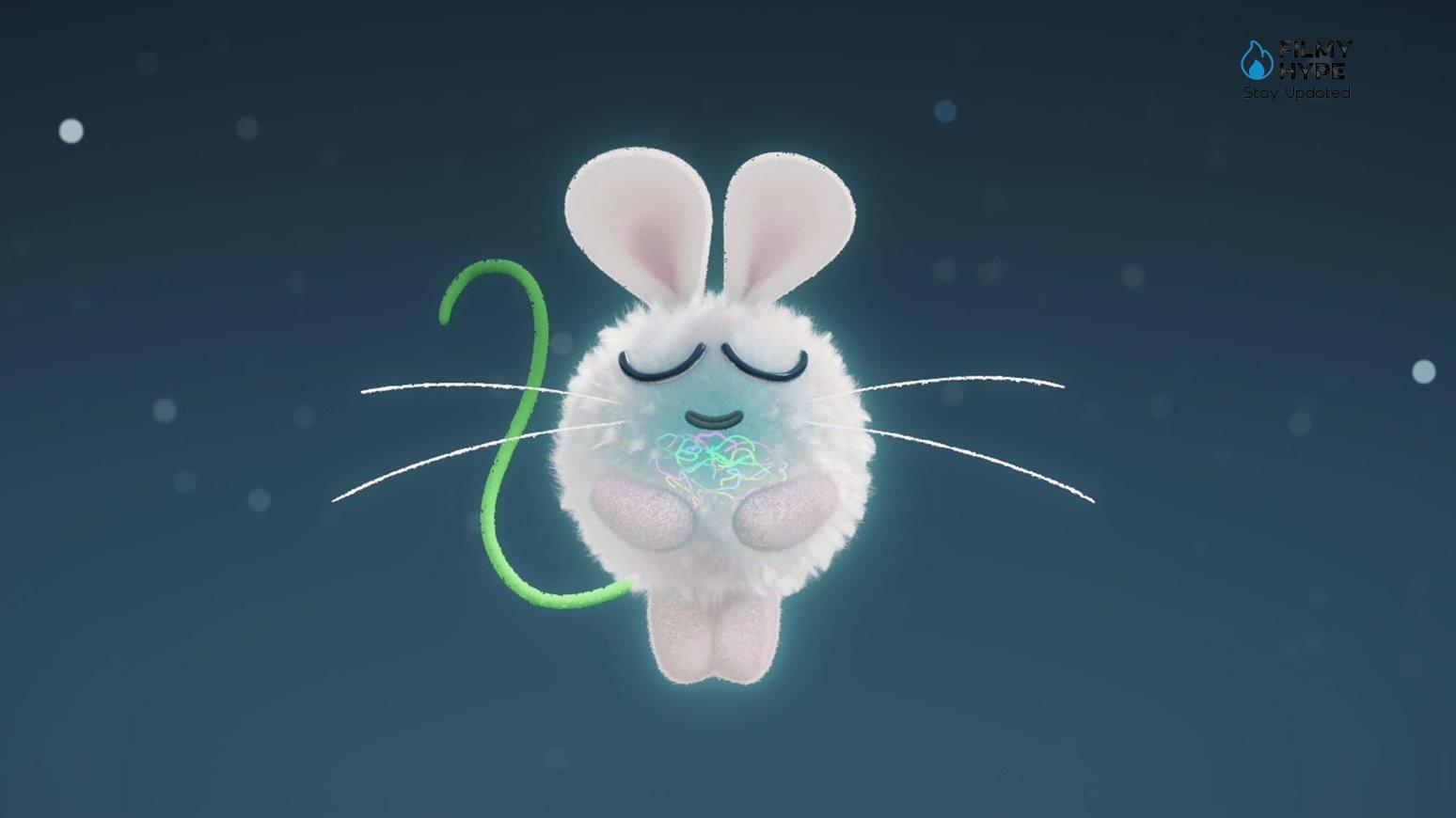
Having introduced all these elements, however, did not distance the screenwriter from the awareness of having to make a film for the whole family, with an eye on the little ones. It, therefore, deviates from the dark tones and strong superstructures of works such as Synecdoche, New York and I’m thinking of finishing it here, to maintain a level more suited to the reference target, obviously without completely canceling its presence in the project. And this is how Orion and the Dark slowly reveals itself to be a film about the power of narration and imagination, about the need not to eliminate one’s fears but rather to understand them and learn to live with them, since it is precisely the contrasts that make life extraordinary. A message that is conveyed through a passionate and exciting story, characterized by non-innovative but fascinating animations, with characters that you can easily become fond of and which, based on the age of the spectator watching the film, have multiple nuances to offer.
Orion and the Dark should not be quickly classified as “a film for children”. Just like the aforementioned Country of Wild Things, in this case too we are dealing with a work that intends to explore the fears of the little ones (and not only) but without ever resorting to useless childishness. By signing a much more complex screenplay than it might seem, Kaufman therefore uses the language of fairy tales to describe a universal feeling such as fear and the wonderful possibilities to which one can open oneself if one faces it. Despite its fluctuating aesthetics, this journey into the world of phobias has its intelligence combined with a taste for adventure at the child level.
Orion and the Dark Review: The Last Words
Orion and the Dark is the new animated film by Netflix based on the illustrated story of the same name by Emma Yarlett, written by Charlie Kaufman, and directed by debutant Sean Charmatz, famous for his work as a CGI animator. A film in which we can recognize all the irony, neurosis, and Kaufmanian depth, which exploits the potential of the animation language to build an anarchic yet coherent story, which continually changes shape, from coming of age to generational story, passing for a treatise on the importance of stories. A way of unfolding that wants to reveal itself to the viewer little by little, in the construction of an always unexpected journey. And from now on, when you go to sleep, you will look around hoping that you too, like the protagonist of the film, will be able to meet those wonderful and colorful characters who inhabit the dark and who make them special.



